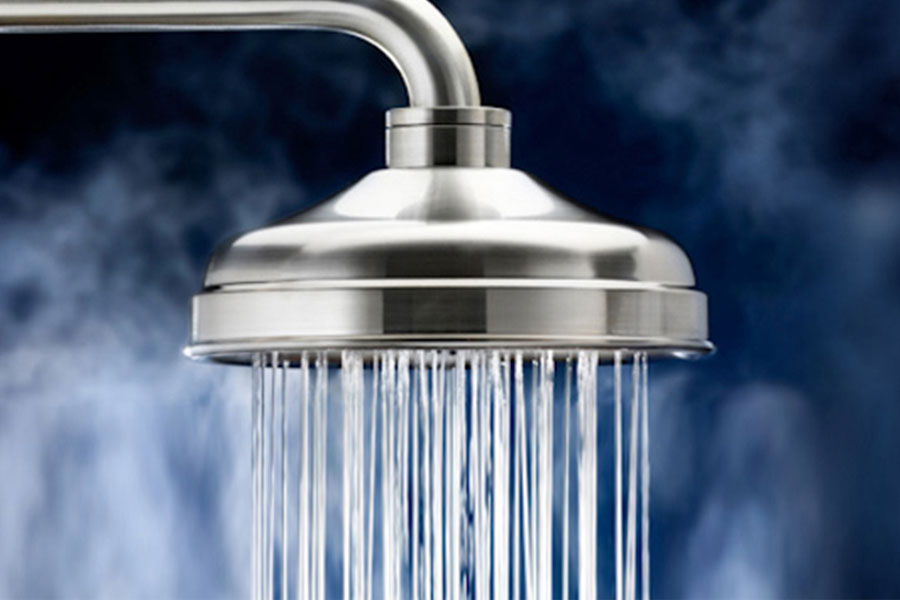Repairing and replacing your old water heater is a job best left in the hands of professionals. However, choosing the right water heater that's best suited to your home and family's needs is best left to you. There are many types and options you can choose from when it comes to water heaters. That's why it's important to be well-informed before you go ahead and buy or rent one. Choosing the right water heater for your home should not only be able to provide you with hot water saving your health from a cold during the winter, but it should also be energy-efficient, saving you money.
CONVENTIONAL STORAGE TANKS
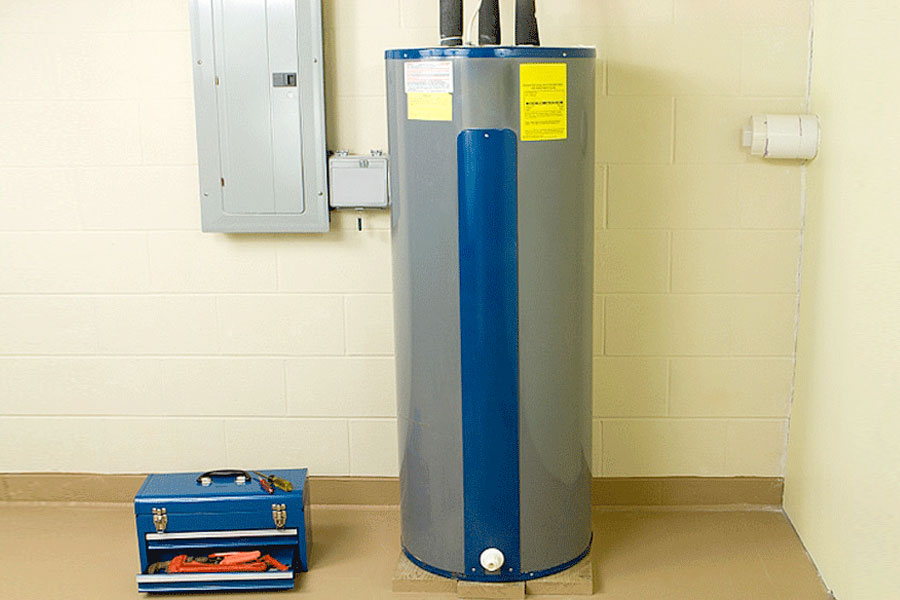
Consisting of insulated tanks which water is stored in, as its name implies. These tanks have a temperature and relief valve that opens up once it reaches 15o psi, or heat reaches 210 degrees Fahrenheit in the tank. Because natural gas water heaters use less power to work, they are typically one among the best choice if you want to get an energy-efficient heater. Statistically speaking, these type of water heaters can last 10-12 years if it's looked after correctly. They should be drained and cleaned out with sediments removed a couple of times a year to ensure you get the most life out of them.
TANKLESS

These type of water heaters are better suited for homes with a large hot water demand. On-demand tankless water heaters use intense flashes of heat against water-filled coils to quickly heat water when needed and can be sized to provide a continuous flow of hot water. While they use less power than tank-based water heaters, their initial cost is much higher. Tankless models are a better option for homes that use natural gas as their source of heat. Electric tankless models are available. However, it requires expensive upgrades to the home. The best way to keep your tankless water heater operation reliably is by descaled the of minerals at least once a year.
CONDENSING
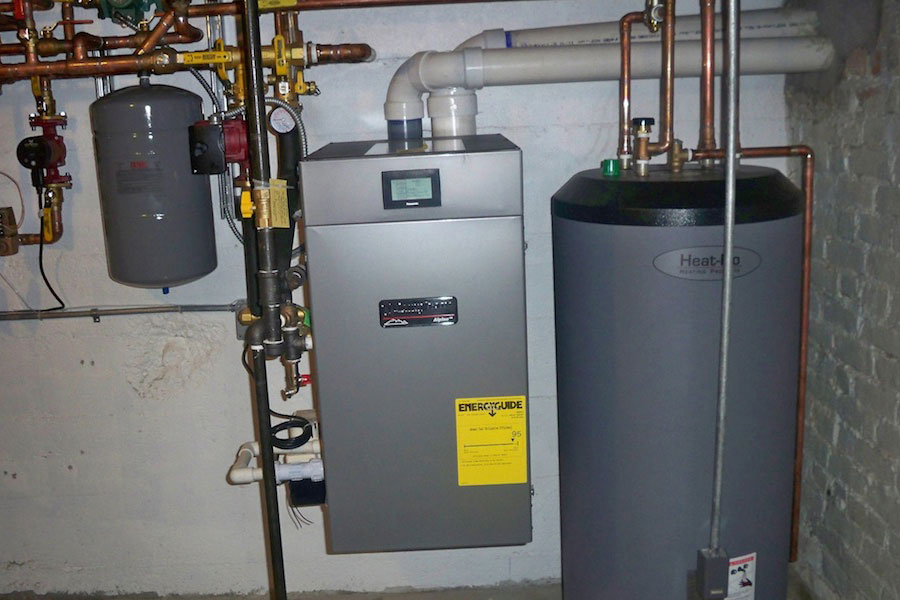
Condensing-based water heaters are also an option if gas is more your thing. These heaters have a capacity of over 55 gallons. This type of model has a tank similar to that of a conventional water heater. They efficiently capture hot exhaust gases that would otherwise leave through the flue and helps to heat the water in the tank. Incoming cold water gets heated up by absorbing heat from the exhaust gases that get blown through its coil on the base of the unit.
HEAT PUMPS
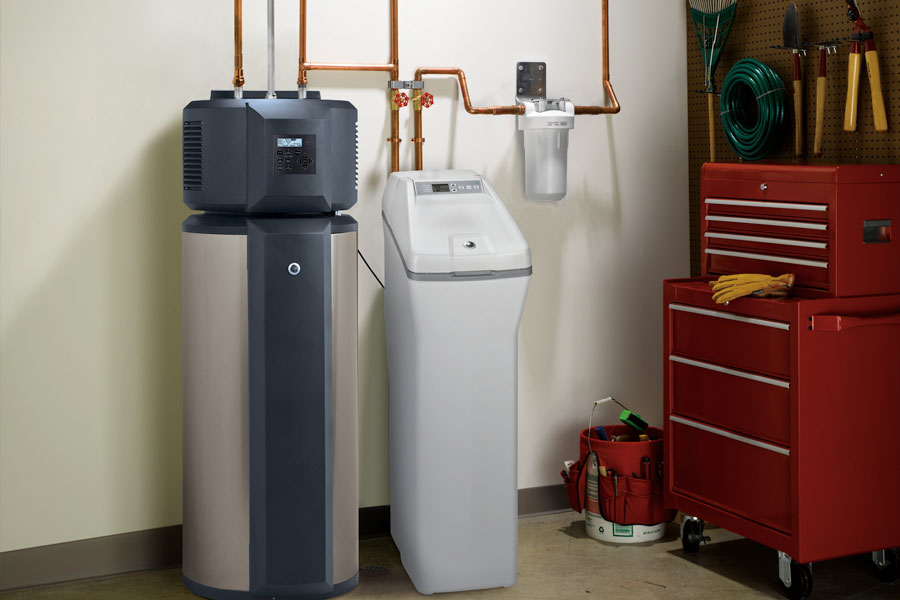
Heat pumps are hybrid water heaters that capture heat from the air or ground and transfers it to the water. While they cost more than electrical models, you realize a return on your investment in your energy bills as heat pumps use 60 percent less energy than electric tanks do. A downside for heat pumps is that they don't work all that well in the cold. They might also need a 7-foot clearance from floor to ceiling.
SOLAR
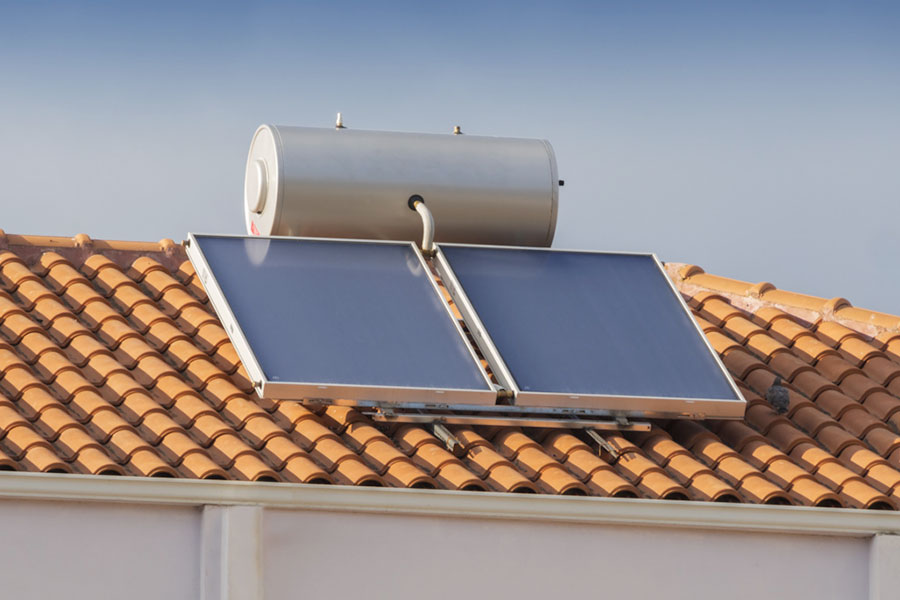
Solar panels that get installed on your roof-top absorb sun rays and transfers its heat to a closed-loop system that runs to the water tank and heats the water. Solar-based water heaters can save you a lot of money if you live in a particularly sunny, and warm climate area. Solar-based heaters also have a built-in backup system that kicks in and operates on electricity or gas on emergency. While solar-based energy seems like a futuristic idea to implement to your home, it could take several years to recover your investment. A full solar panel installation can cost up to 17,000 dollars. Although, solar panels and equipment are becoming less costly as technology progresses.
While these are only some of the types of water heaters out there, they are some of the most popular ones. They all come with their pros and cons, and in the end, it all comes down to your needs.
